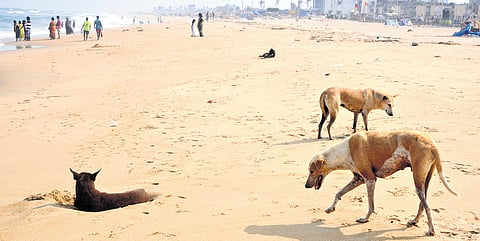

CHENNAI: The state government has constituted an inter-departmental ‘State Animal Birth Control (ABC) Implementation and Monitoring Committee’ in line with the Animal Birth Control Rules, 2023.
The committee, formed in the backdrop of concerns over increasing stray population and dog bites, aims at controlling the stray dog population humanely while ensuring public health and safety. It will be responsible for coordinating the ABC programme in a scientific and phased manner.
Chief Minister MK Stalin chaired a review meeting on Friday to assess the preparatory measures for the initiative. According to the order issued in this regard, the committee will be responsible for establishing ABC monitoring committees in all local bodies and preparing district-level action plans to manage the dog population. It will also be responsible for enlisting the qualified ABC agencies that are recognised by the Animal Welfare Board of India.
The state-level body will also inspect the implementation of the ABC programme, investigate complaints related to ABC, cruelty to animals during its implementation and violation of animal birth control rules and ensure appropriate action.
The committee shall meet once every three months or as and when required, the order read. The state-level committee is chaired by the principal secretary of municipal administration and water supply department. The director of Animal Husbandry and Veterinary Services will serve as the member secretary and nodal officer for implementing the programme.
The panel members include senior officials from the departments of animal husbandry, health, rural development, and municipal administration. As part of the initiative, 500 veterinarians will be trained to perform sterilisation surgeries, and an additional 500 personnel from local bodies will receive training in dog-catching methods.
Infrastructure in 100 government veterinary hospitals across the state will be upgraded to facilitate animal sterilisation procedures. Furthermore, 72 shelters will be established for abandoned, sick, injured, old, and disabled dogs, with land provided by local bodies and maintenance managed by NGOs, for which necessary funding will be allocated. In areas lacking facilities, additional sterilisation centres and integrated dog shelters with veterinary support will be created.
The Tamil Nadu Animal Welfare Board will appoint officers at the state and district levels to monitor the effective implementation of the programme, and funds will be made available.